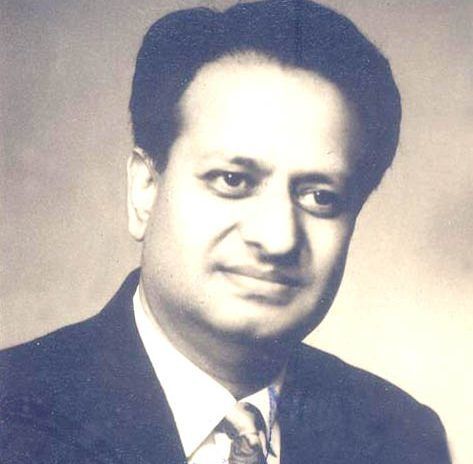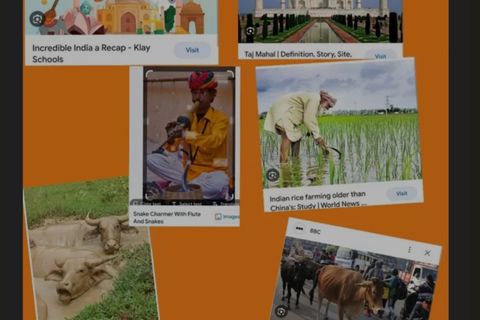The Burning Sun
Climax of Seshendra Sharma's Poetry

THE BURNING SUN
I am the drop of sweat, I am the sun
Rising from the hills of human sinews,
Hearts are my friends
I live in the city of sufferings
Although in my fist, I hold an ocean of history
I sculptured man silently –
Wings that carried birds
Did not bring them back;
I am drinking thick darkness
In the haunts of those forests
Which cry out in agony for the birds
That did not return;
Clutching at the garment woven of memories
I twine myself to the feet of my country.
Heads that were hanging to the trees
Smile as flowers today in the branches
Hearts that received the bullets
Ring in temples of our land like bells;
Blood of theirs nights squeezed and offered
By how many to bring forth this day;
They are hanging like icicles
On the ridges of our roofs;
Look, it is an iron fist I have;
I shall excavate the flame of light
From the rocks of time –
I will set fire to the sleep of resisting centuries –
To the rivers that run in passion after the sea
I cry halt, command them
To paint the colourless arid lands in green,
Invite back the smile which fled away
In terror from this land,
To the butterfly trudging hungrily for a flower
I shall give a garden –
Come children, eat
Bits of nights dipping them in moonlight,
I shall not allow the sun to cheat this sacred day;
If he wakes not on the horizon of this land
I shall tear my burning heart
And put it in its place
With the scarlet of my living flesh
Illuminate the earth
I am the drop of sweat, I am the sun
Rising from the hills of human sinews –
- Seshendra Sharma http://seshendrasharma.weebly.com
Support CosmoFunnel.com
You can help support the upkeep of CosmoFunnel.com via PayPal.




Comments
Visionary Poet of the Millennium
An Indian poet Prophet
Seshendra Sharma
October 20th, 1927 - May 30th, 2007
http://seshendrasharma.weebly.com/
Facebook id : https://www.facebook.com/profile.php?id=100018157218265
Seshendra Sharma is one of the most outstanding minds of modern Asia. He is the foremost of the Telugu poets today who has turned poetry to the gigantic strides of human history and embellished literature with the thrills and triumphs of the 20th century. A revolutionary poet who spurned the pedestrian and pedantic poetry equally, a brilliant critic and a scholar of Sanskrit, this versatile poet has breathed a new vision of modernity to his vernacular. Such minds place Telugu on the world map of intellectualism. Readers conversant with names like Paul Valery, Gauguin, and Dag Hammarskjold will have to add the name of Seshendra Sharma the writer from India to that dynasty of intellectuals.
Rivers and poets
Are veins and arteries
Of a country.
Rivers flow like poems
For animals, for birds
And for human beings-
The dreams that rivers dream
Bear fruit in the fields
The dreams that poets dream
Bear fruit in the people-
* * * * * *
The sunshine of my thought fell on the word
And its long shadow fell upon the century
Sun was playing with the early morning flowers
Time was frightened at the sight of the martyr-
Seshendra Sharma
B.A: Andhra Christian College: Guntur: A.P: India
B.L: Madras University: Madras
Deputy Municipal Commissioner (37 Years)
Dept of Municipal Administration, Government of Andhra Pradesh
Parents: G.Subrahmanyam (Father) , Ammayamma (Mother)
Siblings: Anasuya,Devasena (Sisters),Rajasekharam(Younger brother)
Wife: Mrs.Janaki Sharma
Children: Vasundhara , Revathi (Daughters),
Vanamaali , Saatyaki (Sons)
Seshendra Sharma better known as Seshendra is a colossus of Modern Indian poetry.
His literature is a unique blend of the best of poetry and poetics.
Diversity and depth of his literary interests and his works
are perhaps hitherto unknown in Indian literature.
From poetry to poetics, from Mantra Sastra to Marxist Politics his writings bear an unnerving pprint of his rare genius.
His scholar ship and command over Sanskrit , English and Telugu Languages has facilitated his emergence as a towering personality of comparative literature in the 20th century world literature.
T.S.Eliot , Archbald Macleish and Seshendra Sharma are trinity of world poetry and Poetics.
His sense of dedication to the genre of art he chooses to express himself and
the determination to reach the depths of subject he undertakes to explore
place him in the galaxy of world poets / world intellectuals.
Seshendra’s eBooks : http://kinige.com/author/Gunturu+Seshendra+Sharma
Seshendra Sharma’s Writings Copyright © Saatyaki S/o Seshendra Sharma
Contact : saatyaki@gmail.com+919441070985+917702964402
* * * ** * *
Gunturu Seshendra Sarma:
an extraordinary poet-scholar
One of the ironies in literature is that
he came to be known more as a critic than a poet
HYDERABAD: An era of scholastic excellence and poetic grandeur has come to an end in the passing away of Gunturu Seshendra Sarma, one of the foremost poets and critics in Telugu literature. His mastery over western literature and Indian `Alankara Sastra' gave his works a stunning imagery, unparalleled in modern Indian works. One of the ironies in literature is that he came to be known more as a critic than a poet. The Central Sahitya Akademi award was conferred on him for his work `Kaala Rekha' and not for his poetic excellence. The genius in him made him explore `Kundalini Yoga' in his treatise on Ramayana in `Shodasi' convincingly. His intellectual quest further made him probe `Naishadha Kaavya' in the backdrop of `Lalita Sahasra Naamavali', `Soundarya Lahari' and `Kama Kala Vilasam' in `Swarna Hamsa', Seshendra saw the entire universe as a storehouse of images and signs to which imagination was to make value-addition. Like Stephene Mallarme who was considered a prophet of symbolism in French literature, Seshendra Sarma too believed that art alone would survive in the universe along with poetry. He believed that the main vocation of human beings was to be artists and poets. His `Kavisena Manifesto' gave a new direction to modern criticism making it a landmark work in poetics. Telugus would rue the intellectual impoverishment they suffered in maintaining a `distance' from him. Seshendra could have given us more, but we did not deserve it! The denial of the Jnanpeeth Award to him proves it.
The Hindu
India's National Newspaper
Friday, Jun 01, 2007